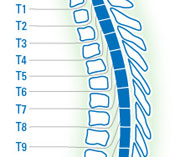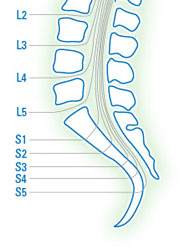Autonomic Dysreflexia
Determined2Heal Tips:
Almost exclusively, every episode of AD I’ve had has been related directly to my bladder. I have a supra pubic catheter that goes directly into my bladder. Because of all the supplements I take, it often gets clogged. My bladder gets full and sends me into AD.
|
Click Here — Check out our Bladder Care Post SCI Pinterest board |
Click Here — Check out our Skincare with a SCI Pinterest board |
I know this is happening because I get an immediate headache and my neck sweats. I’ve learned that it is important to pay attention to these signals right away, and to fix the underlying problem immediately. I can’t just wait and hope that it goes away. I keep an emergency catheter kit in my house, my car and my backpack. I’ve also learned that it is important to stay calm so I can direct those around me who may not know how to relieve the distress.
For me, because my AD is most frequently caused by my bladder, I check the urine related issues. If all is well with that, then I check the skin related issues. There have been times that wrinkles from the bed sheet have caused me to go into AD. The last place I check is the bowel because I am religious about my bowel program and almost never have bowel related AD problems.
I hope the information below will help you develop your own plan of action for AD. You will learn to recognize the signals your body sends and what the usual causes are for you. It is important to have with you whatever supplies you know will get you out of trouble. Most importantly, you must be able to direct somebody to help you out of AD. Practicing when you are not in distress will help keep everybody calm when you are.
Below are my answers to common questions about AD:
What is Autonomic Dysreflexia?
Autonomic Dysreflexia also known as AD needs to be taken seriously. It is usually managed easily, but if not given the proper attention, it could be life-threatening. People with an injury at T5 or above are the most susceptible to episodes of AD.
Why does AD happen?
The connections from the brain to your body below the level of injury are not communicating in the same language. Below the injured area, something is stimulating the nervous system and causing it to be confused. It tries unsuccessfully to send signals to your brain. Your brain cannot interpret signals because it doesn’t even know that a signal has been sent, so your body responds with high blood pressure. You need to identify the problem to bring the pressure back down. If your pressure continues to increase, it is possible that you could have a stroke.
How should I respond to an episode of AD?
|
First |
Next |
Last |
| First, try the following remedies: |
- Sit up
- Raise your head to 90 degrees
- Lower the legs
- Remove anything tight – hose or clothing
- Adjust any sheets or clothing under you to remove wrinkles. Inspect for red marks and keep your eye on them.
Most AD is bladder related and can be caused by:
- Too much urine in your bladder
- kinked catheter
- Abnormal cathing schedule
- Overfull leg bag or collection bag
Often Bowel problems can trigger AD. Commonly, they are:
- Impacted bowel
- Constipated
- Irritated bowel
- Revisit the bowel program
- Hemorrhoids
- Anal infections or bleeding
What else could be causing AD?
|
|
What are the signs of autonomic dysreflexia?
- Blood pressure will increase to 200/100
- Pounding Headache
- Flushed face
- Sweating above the level of injury
- Nasal stiffness or nausea
- Slow pulse (lower than 60 beats per minute)
- Goosebumps below level of injury
How do I prevent AD?
Best methods of prevention are:
- Pressure relief every 15 minutes
- Catheterized on schedule
- Bowel program on schedule
- All bladder and bowel related equipment should be kept clean
- Use sunscreen
- Be careful of water temperature













